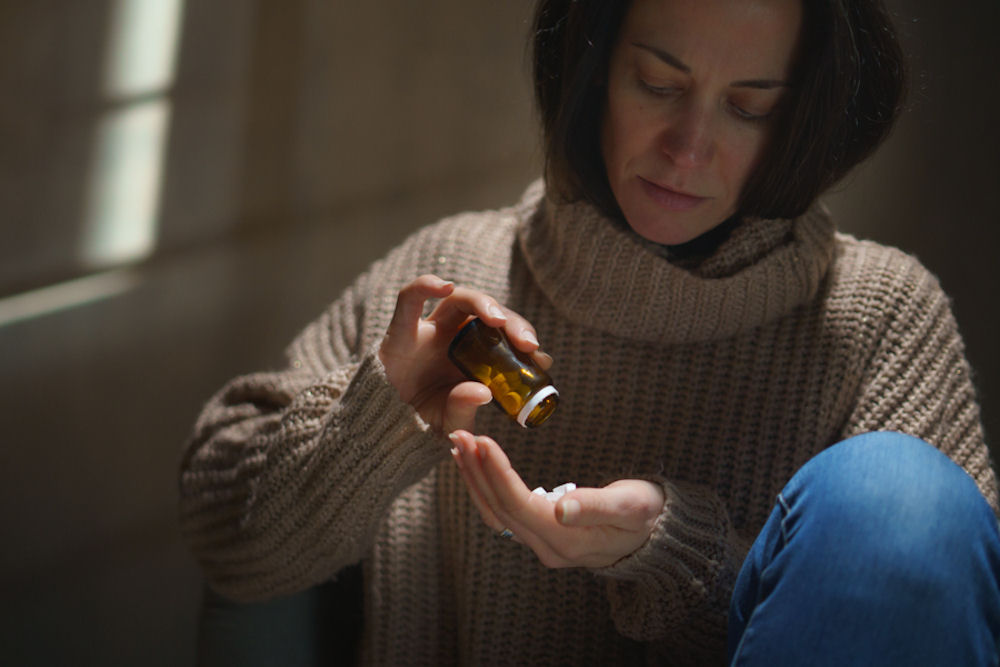Table of Contents
ToggleWhat is Alcoholism?
Alcoholism falls into the category of chronic diseases. It is an ongoing condition that may also be referred to as an alcohol use disorder. Victims of alcoholism are unable to control their drinking. They are preoccupied with getting their next drink all the time. About 7% of American drinkers will develop Alcoholism.
3 Phases of Alcoholism/Alcohol Use Disorder
Alcoholism occurs in three stages. The first stage is denial. This is the point when you deny that you have any type of problem with drinking. You tell yourself and others you can stop at any time.
In the second stage of alcoholism, you lose control. Your cravings for a drink consume your time. You increase how much you drink. You start to sneak drinking as you hide your problem from people who care about you. Alcohol withdrawal symptoms hit you harder when you don’t have something, such as becoming agitated and experiencing tremors. As you increase the amount you drink, it is common to have blackouts when you lose periods of time. You feel yourself spiraling out of control and become closed off from others.
The final stage of an alcohol use disorder is the deterioration of your body and your emotional state. At this point, you can’t even function without having a drink. Your job, your finances, and your relationships are failing. You have troubling health issues. You can’t sleep at night. You’re overcome with anxiety. Depression sets in. Drinking more doesn’t make you feel better anymore.
What is a Chronic Disease?
A disease is a condition that you struggle with over a long period of time. It is persistent. Most people think of physical conditions, such as cancer or fibromyalgia as a chronic condition. Conditions that affect the mind are chronic as well. Victims of alcoholism suffer when a chemical dependency is created in the brain, resulting in physical changes as well. In your mind, you can’t stop drinking. If you try to stop, your body undergoes debilitating physical symptoms.
When Alcoholism Becomes a Disease
The point at which a person is considered an alcoholic is different for everyone. You can’t look at a timeline and mark the day it will happen to you. You might have been hooked after your first sip or it may have happened gradually as you found yourself drinking more often. An alcohol use disorder will actually change the way the pathways of communication in your brain work.
Why Alcoholism is Considered a Chronic Disease
A condition is considered chronic if it lasts for more than three months. Once you become a victim of alcoholism, your disease will be ongoing. The only way you will be able to take back control is if you get professional help.
According to the National Institute on Alcohol Abuse and Alcoholism, genetics may be one of the risk factors that lead to alcoholism. Roughly 60% of alcoholics inherited it from their relatives. It is believed that a person’s genetic makeup and the environment he or she grew up in play a role in becoming an alcoholic.
The number of drinks you have in a week or at one time could also make you more prone to becoming an alcoholic. Being under stress, having low self-esteem, or struggling with depression or anxiety could also lead to an alcohol use disorder.
Can People with AUD Recover?
The National Institute on Alcohol Abuse and Alcoholism offer hope to victims of an alcohol use disorder, noting a third of alcoholics do recover. Alcoholics in recovery either stop alcohol use altogether or may engage in casual drinking on occasion without falling into old habits. Treatment for alcohol addiction from medical professionals leads to the highest percentage of recovery success stories. You need a controlled environment with compassionate staff members to help you take control of your alcohol use.
Detox and Treatment Options for AUD
Treatment can open the door to a brighter future for you. The first step of treatment for AUD, or alcohol use disorder, begins with detox. This is the point when you will be cut off from alcohol use, allowing your body to eliminate the chemicals that have been building up inside of you. Staff members will assist you as you go through withdrawal symptoms. You can go to a facility that focuses only on detox before entering a treatment program or enter a program that includes both. Treatment can be in a residential program or you can take part in an outpatient program. Call our counselors today. We’re here to help you find the right program for you right now.

Stephanie Robilio is an accomplished Clinical Director at Agape Behavioral Healthcare. With a Master of Social Work degree, LCSW license, and extensive training in Rapid Resolution Therapy under her belt, she brings a wealth of expertise to her role. Her unique combination of education and experience allows her to provide exceptional care to clients and lead her team with confidence. Stephanie’s joy comes from witnessing the moments when her patients creatively connect the dots and bravely move toward reclaiming their power. Her purpose is to help individuals understand their past so they can create a future full of hope, growth, and success. Stephanie attributes a large portion of her success to the supportive culture and strong sense of community fostered by the Agape team.




